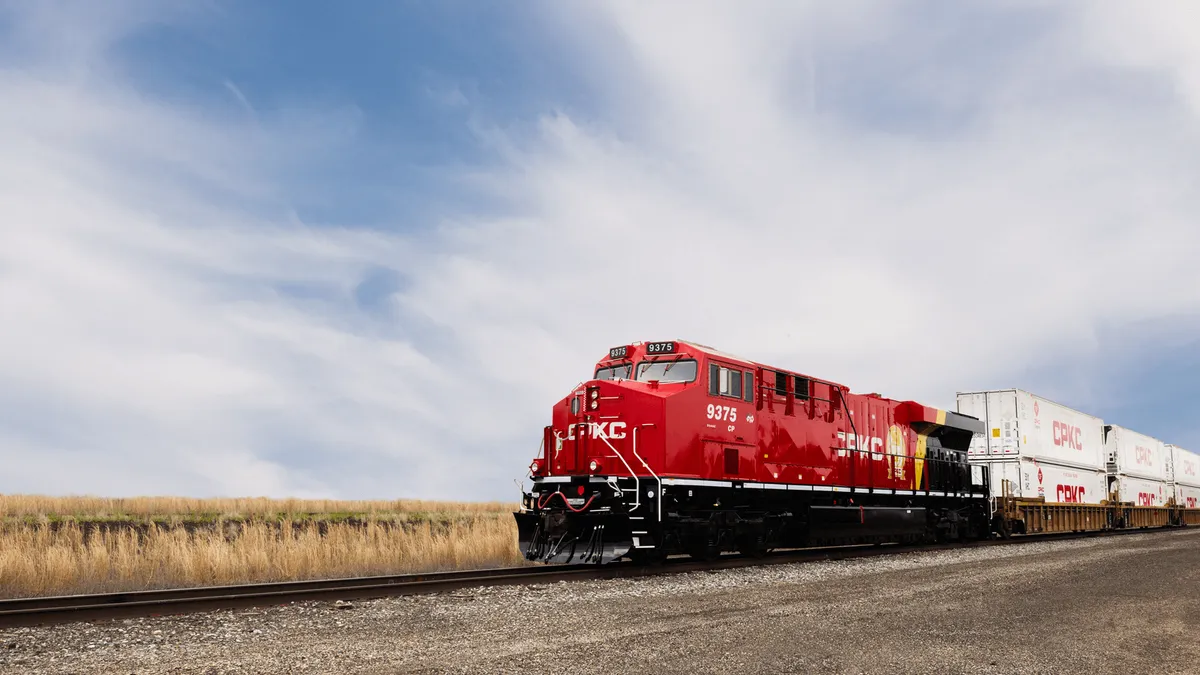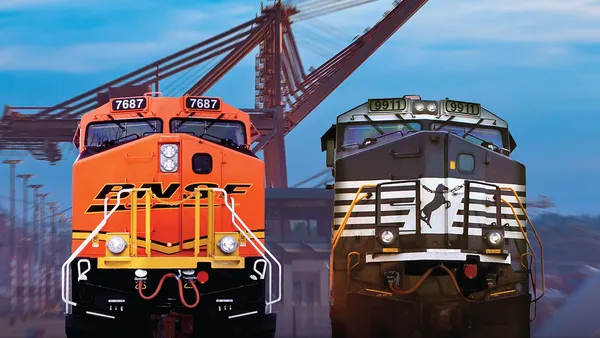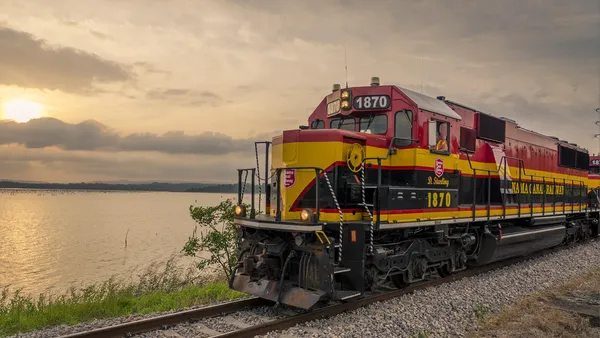Less than a month after a work stoppage shut down Canada’s main rail carriers, both companies say operations on their respective networks are back to normal.
“All of our metrics, they’re normalizing now,” Keith Creel, president and CEO of Canadian Pacific Kansas City, said Wednesday during the annual Morgan Stanley Laguna Conference. “So, we’re two weeks out of the strike and the network essentially is caught up.”
Creel’s comments echoed Canadian National, which on Tuesday said its operations have recovered from months of labor uncertainty and a complete shutdown of its Canadian network. The rail carrier said planning for potential shutdowns “enabled a swift network recovery following the labor stoppage.”
The initial work stoppage began Aug. 22 but lasted less than a day. Canadian National and CPKC then scrambled following an Aug. 24 order by the Canada Industrial Relations Board to resume operations. The board enforced a request by Canada’s Minister of Labour and Seniors Steven MacKinnon to impose final binding arbitration to get the rail carriers and nearly 10,000 Teamsters Canada Rail Conference workers back to work by Aug. 26.
The government’s intervention has prevented Canada’s main rail networks from shutting down either by a work stoppage or employee lockout. However, days after returning to work, the Teamsters mounted a legal challenge to the binding arbitration order. The move does not supersede the government’s action.
Avoiding a lengthier shutdown has been a relief for logistics managers who are now focused on looming strikes at ports on the East Coast and Gulf Coast in the U.S.
Paul Brashier, VP of global supply chain for ITS Logistics, in the company’s September Port Rail Ramp Index said, “with the labor issues in Canada subdued, operations in North America are mostly stabilized.”
Creel credited the rapid recovery of CPKC’s network to preparations made ahead of a possible late May strike by the Teamsters, which also was averted by government intervention. However, bulk freight, including coal, has yet to fully normalize, despite some indicators of recovery.
“We expected the strike to occur in May but that got delayed a bit,” Creel said. The earlier experience put CPKC in better position to plan for the August work stoppage, he added. Both CPKC and Canadian National implemented freight embargoes to limit shipments on its network once it appeared the railroads and union would not reach new labor deals prior to the August work stoppage date to replace agreements that expired last December.
While trains are running again, Creel acknowledged CPKC lost money from the brief disruption, as shippers diverted freight to trucking carriers, though he didn’t offer specifics.
“There’s some revenue we won’t get back,” he said.
Canadian National said the labor disruption and weaker demand for forest products and metals contributed to its revised full-year financial guidance. The rail carrier estimates that labor uncertainty and wildfires in Alberta, Canada, led to a quarter-to-date impact of around 20 cents per share.
CKPC’s task now is winning back lost business and ensuring shippers of no further service disruptions. Creel said bulk freight, including commodities like coal, has “not yet normalized” but that too is beginning to recover.
Creel said he was optimistic the binding arbitration process would lead to a new labor deal by year’s end or by early 2025 and is focused on finishing the year strong.
“As far as pent-up demand, we’ve got strong demand,” he said. “We’ve bounced back very quickly and think we’re getting back into a very good rhythm.”














